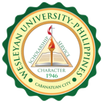 Wesleyan University-Philippines (WUP) joined education and industry leaders at Coursera Connect Manila 2025, held at the Sheraton Manila Hotel, Newport World Resorts, on October 9, 2025, where the University was represented by Dr. Juanito C. Leabres Jr., Director of the WUP Center for Lifelong Learning and concurrent Director of the Office of University Instruction, and Engr. Harry Bert Rolle, Program Head of the College of Engineering and Computer Technology.
Wesleyan University-Philippines (WUP) joined education and industry leaders at Coursera Connect Manila 2025, held at the Sheraton Manila Hotel, Newport World Resorts, on October 9, 2025, where the University was represented by Dr. Juanito C. Leabres Jr., Director of the WUP Center for Lifelong Learning and concurrent Director of the Office of University Instruction, and Engr. Harry Bert Rolle, Program Head of the College of Engineering and Computer Technology.
Coursera is a leading global massive open online course (MOOC) platform, founded in 2012 with the mission of providing universal access to world-class learning. It partners with over 350 top universities and major companies—including Yale, Duke, Google, and IBM—to offer a diverse range of educational products such as standalone courses, specialized learning paths called Specializations, career-focused Professional Certificates, micro-credentials, and even full online bachelor’s and master’s degrees.
These micro-credentials—short, stackable, and skills-oriented learning units—allow learners to earn verifiable credentials that can be accumulated toward academic credit or professional advancement. They play a critical role in bridging the gap between formal education and industry requirements, providing a flexible and accessible pathway for lifelong learning, professional upskilling, and global employability.
Coursera’s engagement in the Asia Pacific (APAC) region, particularly in the Philippines, is a core strategic priority, with the country serving as one of its largest and fastest-growing markets. To expand access, Coursera has implemented localized pricing and optimized its platform for mobile learning, helping bridge the digital divide and foster inclusive education.
This strategic effort is strengthened through partnerships with higher education institutions (HEIs) and industry leaders. Prominent Philippine HEIs such as the University of the Philippines, Mapúa University, Lyceum of the Philippines University, the University of Nueva Caceres (UNC), and the National Teachers College (NTC) have integrated Coursera’s micro-credential programs into their curricula to enhance student learning and faculty development. Likewise, major industry partners, including Ayala Corporation, Aboitiz Group of Companies, Nestlé Philippines, Johnson & Johnson, and the Bank of the Philippine Islands (BPI), utilize Coursera to deliver corporate upskilling in high-demand digital competencies. The Department of Science and Technology (DOST) and the Technical Education and Skills Development Authority (TESDA) also collaborated with Coursera to advance nationwide workforce recovery and capability-building initiatives.
This year’s Coursera Connect Manila emphasized the Philippines’ growing role in the global digital learning ecosystem, fostering collaboration among HEIs, government agencies, and industry partners to build a more inclusive and skills-driven future of work.
The event opened with a keynote address by Hon. Secretary Jose Francisco “Kiko” B. Benitez, Director General of TESDA, who emphasized the pivotal role of purpose-driven and skills-based education in cultivating a resilient, adaptive, and future-ready Filipino workforce amid the rapid advancements in artificial intelligence (AI).
Purpose-Driven Learning in an AI-Powered Economy, delivered by Dr. Victor Strecher of the University of Michigan, highlighted the importance of identifying and aligning one’s personal and professional purpose with learning goals to cultivate resilience, motivation, and well-being in an era increasingly shaped by AI-related challenges.
Ashutosh Gupta of Coursera underscored the importance of collaboration among the education, industry, and government sectors to bridge skills gaps, promote innovation, and build a more equitable and future-ready workforce in the age of AI. Mr. Vincent Remo of the Healthcare Information Management Association of the Philippines (HIMAP) pointed out how AI is reshaping the healthcare Business Process Outsourcing (BPO) workforce, stressing the urgent need for retooling and continuous training to maintain competitiveness and employability. Meanwhile, Dr. Reynaldo Vea of iPeople Inc. discussed how AI applications could be strategically integrated within the Philippine higher education system, presenting the Philippine Microcredential Ecosystem and its alignment with evolving educational strategies and workforce demands.
A panel discussion featuring Dr. Rosula Reyes of Adamson University, Prof. Jo-Ann Solomon of the University of the Immaculate Conception, and Amit Narain of Nestlé Philippines gave way for the sharing of insights on how universities and industries could harness AI to enhance faculty support, personalize learning experiences, and reskill employees—while preserving the essential human connection at the center of education and work.
A key takeaway was the realization among the attendees of the transformative role that AI plays in reskilling and upskilling both students and faculty, as it would redefine the competencies required in today’s digital economy. The micro-credentials would enable continuous, flexible, and targeted learning—allowing educators and learners alike to acquire emerging digital skills, remain industry-relevant, and actively contribute to innovation-driven education.
Engr. Rolle underscored how innovative approaches to integrating online learning into higher education through the use of micro-credentials and digital badges not only strengthen students’ competencies but also provide them with globally recognized credentials that serve as tangible proof of their skills, giving them a competitive edge in their future careers and empowering them to become more adaptable in the ever-evolving professional landscape.
Through this initiative, WUP explored partnerships with world-class providers such as Coursera in response to the ever-evolving Philippine educational landscape. The goal was to enhance digital learning integration, expand access to micro-credential opportunities, and strengthen the University’s commitment to producing globally competitive and future-ready graduates—aligned with its plans to develop its own stackable and non-stackable micro-credential programs that would promote continuous learning and professional development.
Furthermore, through its active engagement in transformative educational initiatives, WUP reaffirmed its commitment to advancing the United Nations Sustainable Development Goals (SDGs)—particularly SDG 4: Quality Education, by promoting accessible, lifelong, and technology-enhanced learning opportunities; SDG 8: Decent Work and Economic Growth, by enhancing the employability and global competitiveness WUP graduates; and SDG 9: Industry, Innovation, and Infrastructure, by fostering innovation-driven collaboration among WUP, other academic institutions, and industry partners.
Article and photos by Juanito C. Leabres, Jr.

